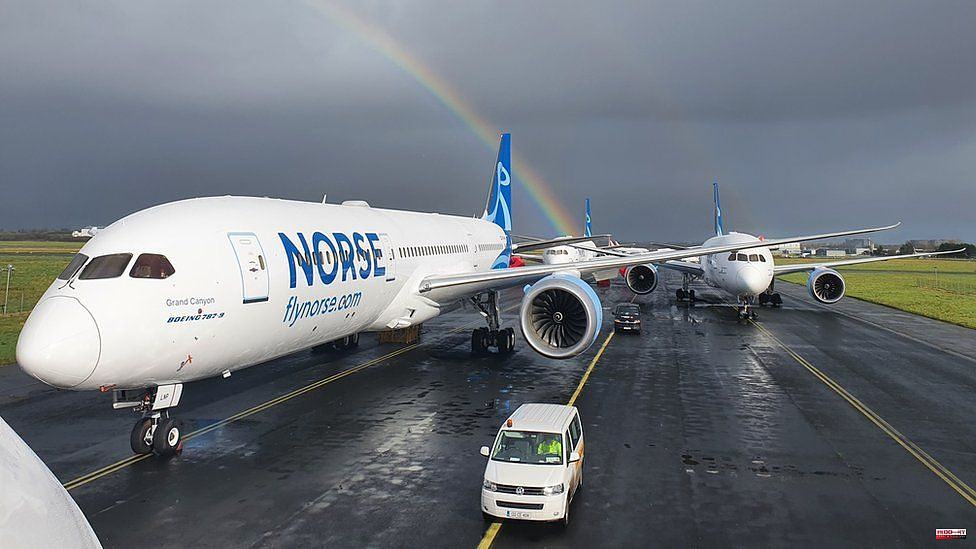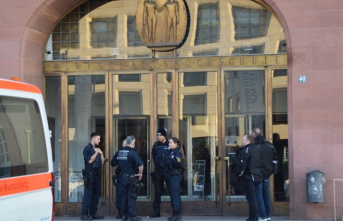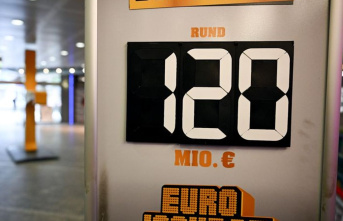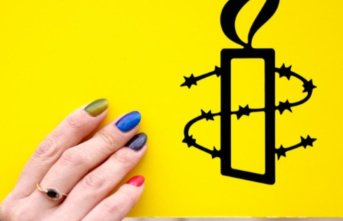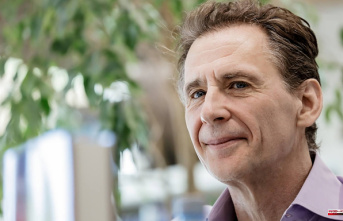The worst period of commercial aviation history was marked by the pandemic.
However, there have been dozens of new airlines around the globe in the last year, hoping to revive air travel.
Bjorn Torre Larsen, chief executive at Norse Atlantic Airways, says that "it's actually very good time for launching an airline." There is a lot of demand. For two years, people have not been able travel between continents for at least two years.
Norse Atlantic Airways is one of the newcomers. It will start flying its "longboats” between Europe and North America starting 14 June. It has snapped up planes at low prices and was able to secure valuable airport slots such as London Gatwick or New York JFK.
More than 3,000 applicants applied for the first 50 pilot jobs at the Norwegian company.
Larsen points out the fleet of Boeing Dreamliners that are parked at Oslo Airport's tarmac. "These aircraft are brand new." "We were able get these aircraft at a lower price than any other company."
Norse will compete with established airlines like British Airways or Air France. Larsen is positive that the airline can be built from scratch.
He says, "We don’t have any legacy system." "We can start this airline exactly as we want."
According to the BBC, the entrepreneur also owns a shipping company. He said he was passionate about aviation, but he wasn't tempted by it earlier because of the high risks involved: strong competition, difficult to find aircraft, hard to hire staff, and difficult landing and take-off slots.
He says, "When the stars aligned last Year, I saw it as a once in a lifetime market opportunity." Larsen isn’t the only one who saw a golden opportunity.
International Air Transport Association (IATA), a trade association representing the aviation sector, called 2020 "the worst year ever recorded".
Global passenger numbers fell 60% due to flights being grounded two years ago. They are now at 1.8 billion, down from 4.5 billion in 2019.
55 airlines were forced to close their doors in 2020 as a result. The IATA told BBC that 32 new airlines had been launched at the same moment, which may seem surprising.
These new carriers were able buy inexpensive aircraft because the prices of many industry-related aircraft had dropped. Staff were also available and new arrival and departure slots were available.
In 2021, it was an identical picture. The world's passenger numbers increased slightly to 2.3 billion. However, 35 more airlines were forced to close down and 57 new ones were created.
They have already taken off in all regions. Avelo and Breeze operate in the USA, where they will be joined by Alaskan airline Northern Pacific later this year.
Play and Niceair are now available in Iceland. Bonza from Australia and Akasa from India will soon be flying.
Hans Joergen Elnaes from consultancy Winair, says that airlines have never seen a situation such as the one in which they are currently.
The aviation analyst explains that there is a market where many aircraft are available and lease rates at very attractive rates.
The series New Tech Economy explores how technological innovation will shape the future economic landscape.
Elnaes also stated that new airlines could easily attract pilots and cabin crew members who are out of work since 2020 - many of whom were laid off during the pandemic.
He believes that this window is now closed, especially in terms of getting cheap financing. "This was the 2021 moment when leasing aircraft was possible. Those days are over.
Low-cost transatlantic flights will be operated by Iceland's Play and Norse.
This market is where many new entrants have failed. Wow was shut down in 2019 and Norwegian Airlines pulled its long-haul routes out of service in the early 2021.
But, Mr Elnaes believes that valuable lessons have been learnt and that the current is better.
He says, "Both are being careful not to overachieve, not to operate too few flights, before their established themselves and see how things go."
Oslo-based Flyr launched European and domestic flights last summer. Tonje Wikstrom Frislid is the chief executive of Flyr. He says that it was small and agile which helped it weather the lockdowns.
"We had to prove our model. She says that we were tested especially during the winter. "And we passed this test."
It is difficult to set up a company. It is a difficult task to create a new airline. We did it mainly on Teams [video conference]
Ms Frislid added that it was a huge bonus to have experienced aviation staff looking for work. To start an airline, you need to have specific skills.
"It's difficult to get hold of that in a normal environment. That possibility was opened by the pandemic.
Flyr will soon operate 12 aircraft on 46 routes. Ms Frislid says, "We're going slowly to build this."
Peter Haglehoj, a pilot with the airline, is one of its new recruits. He says, "The pandemic was very difficult for many people." "So, new airlines are good. This means that there are more jobs.
Global passenger numbers are rising rapidly as coronavirus travel restrictions around the globe continue to be lifted. According to IATA's latest statistics, March saw 76% more passengers than in the same month last years. The IATA still believes that 2019 will not reach the pre-pandemic peak until 2024.
Just as the coronavirus crisis is over, another unanticipated problem has emerged for airlines: the war in Ukraine.
It has become too dangerous to fly over Ukraine, while Russia has closed its airspace for Western airlines. Some routes between Europe, Asia and North America have been delayed for hours and are now unprofitable.
Even more important, the global oil price has risen and jet fuel costs have doubled since last. Willie Walsh, director-general of IATA, has stated that higher fares are "inevitable."
However, Mr Elnaes claims that passengers will pay more for their travels. "People want to travel." He says, "We saw a decrease in demand for travel within the first 12-14 days after Russia invaded. But then it stabilized."
Flyr's Ms Frislid claims that her airline uses brand-new aircraft which saves them about 14% fuel compared to older planes. This is one way to manage rising fuel prices.
Norse, on the other hand, chose to launch slightly more slowly with fewer aircraft.
Larsen, the company's chief executive, stated that "We have the flexibility and the ability to enter the market cautiously but in line with the demand."

